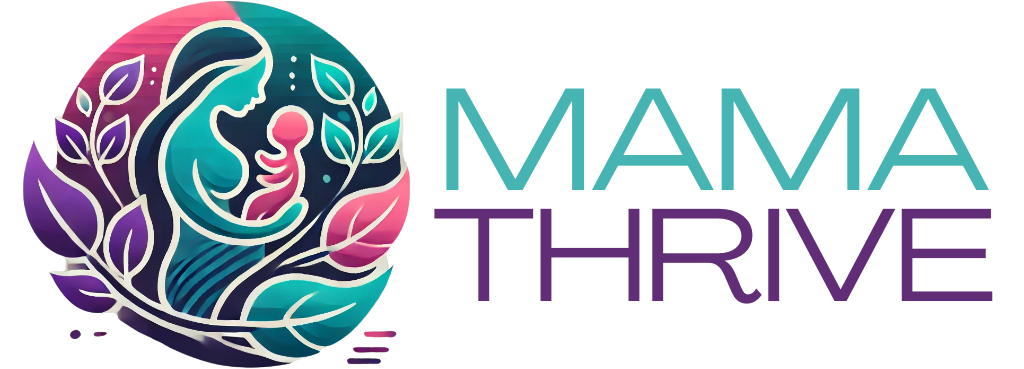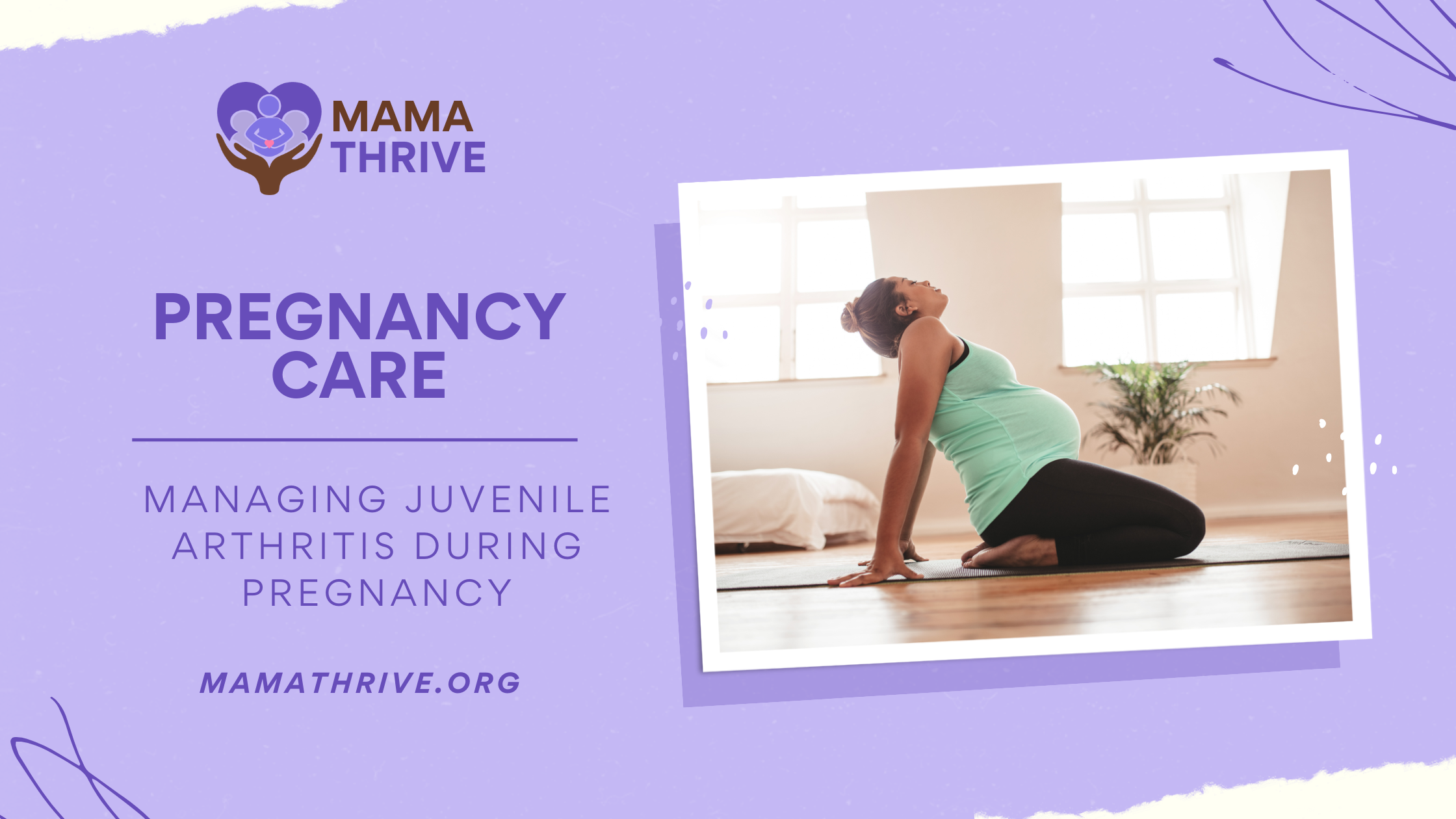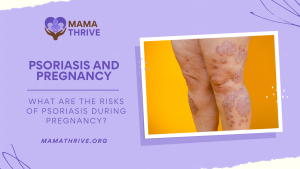Did you know that women with juvenile idiopathic arthritis face an increased risk of pregnancy complications, including preterm birth and babies born small for their gestational age? This unexpected fact highlights the importance of understanding and properly managing juvenile arthritis during pregnancy.
Juvenile idiopathic arthritis is the most common type of arthritis diagnosed in children before the age of 16 in the United States. This autoimmune condition can cause pain, inflammation, and stiffness in the joints, and unfortunately, there is no cure. Women with Juvenile Idiopathic Arthritis who reach their reproductive years must navigate the unique challenges of managing their disease during pregnancy.
Key Takeaways
- Women with juvenile idiopathic arthritis may face an increased risk of pregnancy complications, including preterm birth and smaller-than-average babies.
- Proper disease management and preconception planning are crucial for ensuring the best possible outcomes for both the mother and the baby.
- The activity level of Juvenile Idiopathic Arthritis can change during pregnancy, with many women experiencing improvement in the second trimester, followed by a potential flare-up after delivery.
- Obstetric and neonatal outcomes for women with Juvenile Idiopathic Arthritis are influenced by factors like disease activity and medication use during pregnancy.
- Postpartum planning and a strong support system are important for managing the challenges of caring for a newborn while living with juvenile arthritis.
This comprehensive guide will explore the unique considerations and strategies for managing juvenile arthritis during pregnancy, from preconception planning to postpartum care. By understanding the risks, complications, and potential changes in disease activity, women with Juvenile Idiopathic Arthritis can work closely with their healthcare team to ensure the healthiest possible outcomes for both themselves and their babies.
Understanding Juvenile Idiopathic Arthritis
Juvenile idiopathic arthritis is an autoimmune condition that affects approximately 1 in 1,000 people in the United States. It can cause pain, swelling, and stiffness in the joints, including the hands, wrists, elbows, knees, and ankles. Juvenile Idiopathic Arthritis is the most common type of arthritis in children and adolescents.
There are several different types of Juvenile Idiopathic Arthritis, each with its own unique characteristics:
- Oligoarticular Juvenile Idiopathic Arthritis: This subtype affects four or fewer joints and is the most common form, accounting for 55% of cases in one study.
- Polyarticular Juvenile Idiopathic Arthritis: This type affects about 25% of children with Juvenile Idiopathic Arthritis and involves five or more joints.
- Systemic Juvenile Idiopathic Arthritis: This subtype, which affects around 10% of children with Juvenile Idiopathic Arthritis, is characterized by fever, rash, and arthritis.
- Psoriatic Arthritis (PsA): PsA may affect one or more joints, often the wrists, knees, ankles, fingers, or toes, and is associated with the skin condition psoriasis.
- Enthesitis-related Arthritis: This type is more common in boys and typically appears in children between the ages of eight and 15.
Symptoms of Juvenile Idiopathic Arthritis can vary widely, and the condition is diagnosed based on a combination of clinical findings, laboratory tests, and imaging studies. Despite the availability of various treatment options, including disease-modifying antirheumatic drugs (DMARDs) and biologic agents, many individuals with Juvenile Idiopathic Arthritis continue to experience persistent disease activity into adulthood.
In a nationwide Swedish population-based cohort study, women with Juvenile Idiopathic Arthritis were found to be at an increased risk of preterm birth, with adjusted odds ratios (aOR) of 1.74 for Juvenile Idiopathic Arthritis pediatric cases and 4.12 for Juvenile Idiopathic Arthritis persisting into adulthood. Juvenile Idiopathic Arthritis persisting into adulthood was also associated with higher risks of very preterm birth, spontaneous preterm birth, small for gestational age birth, and pre-eclampsia.
Regular exercise and early treatment with medications, such as methotrexate and biologics, can help manage the symptoms of Juvenile Idiopathic Arthritis and prevent long-term complications. However, the condition remains a significant challenge for many individuals, underscoring the importance of continued research and comprehensive care for those affected.
Risks and Complications of Juvenile Idiopathic Arthritis During Pregnancy
Pregnancy can present unique challenges for women with juvenile idiopathic arthritis . Research suggests these individuals may face an increased risk of certain pregnancy complications and adverse outcomes, including preterm delivery and babies born small for their gestational age.
According to a study conducted in New South Wales, Australia, between 2000 and 2010, women with Juvenile Idiopathic Arthritis had significantly higher rates of pre-eclampsia, postpartum hemorrhage, and severe maternal morbidity compared to other women without the condition. Additionally, infants born to mothers with Juvenile Idiopathic Arthritis were more likely to be born prematurely, although they did not have an increased risk of being small for gestational age, requiring neonatal intensive care, or experiencing severe neonatal morbidity.
The exact mechanisms underlying these risks are not fully understood, but they may be related to the disease itself, the activity state of the disease, and/or the medications used to manage Juvenile Idiopathic Arthritis. It is important for women with Juvenile Idiopathic Arthritis to work closely with their healthcare team to monitor their condition and address any concerns during pregnancy.
| Pregnancy Outcome | Juvenile Idiopathic Arthritis Group | General Population |
| Preterm Birth | Increased Risk | Lower Risk |
| Small for Gestational Age | No Increased Risk | Average Risk |
| Severe Maternal Morbidity | Significantly Higher Rates | Lower Rates |
| Neonatal Intensive Care | No Increased Risk | Average Risk |
It is crucial for women with Juvenile Idiopathic Arthritis to work closely with their healthcare team to monitor their condition and address any concerns during pregnancy. By understanding the potential risks and taking proactive measures, women with Juvenile Idiopathic Arthritis can have a healthy pregnancy and positive outcomes for both themselves and their babies.
Preconception Planning and Disease Control
Before becoming pregnant, it’s crucial for women with juvenile idiopathic arthritis to work closely with their rheumatologist and obstetrician to optimize disease control. Ideally, Juvenile Idiopathic Arthritis should be well-controlled for 3 to 6 months before attempting conception. This may involve adjusting medications, such as discontinuing methotrexate and transitioning to safer alternatives.
The use of disease-modifying antirheumatic drugs (DMARDs) and biologic agents should be carefully evaluated and discussed with the healthcare team to ensure the best possible outcomes for both the mother and the developing baby. According to research, 70% to 80% of women with rheumatoid arthritis experience improved symptoms during pregnancy, and new biologic drugs have revolutionized treatment, helping avoid joint deformities and disability.
However, many drugs for rheumatoid arthritis, such as methotrexate and leflunomide, can cause birth defects. Methotrexate might also result in sperm problems causing birth defects when taken by men, and leflunomide requires a 2-year washout period before trying to conceive. Low-dose prednisone, hydroxychloroquine, and sulfasalazine are considered safe during pregnancy.
Women with Juvenile Idiopathic Arthritis are advised to ensure their disease is under control before attempting to conceive, as recommended by rheumatologists after being six months without active disease. Maintaining a healthy weight, getting essential vitamins, and avoiding trigger foods are crucial during and after pregnancy to manage Juvenile Idiopathic Arthritis symptoms.
| Medication | Suitability for Pregnancy |
| Methotrexate | Not suitable, can cause birth defects |
| Leflunomide | Not suitable, requires 2-year washout period |
| Prednisone (low-dose) | Considered safe during pregnancy |
| Hydroxychloroquine | Considered safe during pregnancy |
| Sulfasalazine | Considered safe during pregnancy |
By working closely with their healthcare team and following preconception planning guidelines, women with Juvenile Idiopathic Arthritis can increase their chances of a healthy pregnancy and better manage their disease during this important time.
Juvenile Arthritis During Pregnancy: Disease Activity Changes
The course of juvenile idiopathic arthritis during pregnancy can be quite variable. Some women with Juvenile Idiopathic Arthritis experience an improvement in their disease activity, while others may face worsening or flare-ups. The reasons behind these changes in disease activity are not fully understood, but they are likely related to the immunomodulatory effects of pregnancy.
Studies have shown that a significant proportion of women with Juvenile Idiopathic Arthritis, or even rheumatoid arthritis (RA), can experience improvement or remission of their inflammatory arthritis symptoms during pregnancy. In one study, 79% of RA patients and 100% of Juvenile Idiopathic Arthritis patients reported improvement or remission of their symptoms during pregnancy.
The timing of this improvement is also noteworthy. Among women who showed signs of disease improvement, 62% experienced this in the first trimester, with the improvement either sustaining or progressively increasing until delivery. Interestingly, the researchers found that as fetal DNA quantities doubled, the likelihood of arthritis improvement increased by 1.2 fold.
However, the postpartum period often brings about a resurgence of disease activity as the immune system and hormones return to their pre-pregnancy state. In the same study, 90% of the patients who experienced improvement during pregnancy observed disease recurrence by the third or fourth month after giving birth.
Careful monitoring and management of Juvenile Idiopathic Arthritis throughout the pregnancy and postpartum period are crucial to ensure the best possible outcomes for both the mother and the child. Healthcare providers must work closely with their patients to navigate the complex landscape of Juvenile Idiopathic Arthritis disease activity changes during this important time.
| Statistic | Value |
| Births among women with juvenile onset arthritis identified in the study | 1,807 |
| Control births included in the cohort study | 1,949,202 |
| Increased risk of preterm birth for women with Juvenile Idiopathic Arthritis, especially medically indicated | aOR 1.74 (1.35–2.67) for Juvenile Idiopathic Arthritis pediatric, aOR 4.12 (2.76–6.15) for Juvenile Idiopathic Arthritis persisting into adulthood |
| Increased risk of very preterm birth, spontaneous preterm birth, small for gestational age birth, early-onset pre-eclampsia, and late-onset pre-eclampsia for women with Juvenile Idiopathic Arthritis persisting into adulthood | – |
| Women with Juvenile Idiopathic Arthritis pediatric only at increased risk of delivery by caesarean section and induction of labor | aOR 1.42 (1.66–1.73) for caesarean section, aOR 1.45 (1.18–1.77) for induction of labor |
| Proportion of RA patients and Juvenile Idiopathic Arthritis patients who experienced improvement or remission of inflammatory arthritis symptoms during pregnancy | 79% for RA, 100% for Juvenile Idiopathic Arthritis |
| Proportion of women who showed signs of disease improvement in the first trimester | 62% |
| Increase in likelihood of arthritis improvement for every doubling of fetal DNA quantities | 1.2 fold |
| Proportion of patients who experienced improvement during pregnancy and observed disease recurrence by the third or fourth month postpartum | 90% |
Obstetric and Neonatal Outcomes
Juvenile Idiopathic Arthritis can pose certain risks during pregnancy, potentially impacting both the mother and the baby. According to recent research, women with Juvenile Idiopathic Arthritis may face a higher likelihood of experiencing preterm birth, babies born small for their gestational age, and an increased need for Cesarean delivery.
A large-scale study examined the pregnancy outcomes of 2,100,143 women, including 778 (0.037%) who had Juvenile Idiopathic Arthritis. The findings revealed that babies born to mothers with Juvenile Idiopathic Arthritis were more likely to have low birth weight, with an adjusted odds ratio of 1.35 (95% CI: 1.02 to 1.79) compared to those born to mothers without Juvenile Idiopathic Arthritis.
However, the study did not find significant differences in other perinatal complications, such as stillbirth, prematurity, or small for gestational age, between mothers with and without Juvenile Idiopathic Arthritis. Additionally, the rates of adverse obstetrical outcomes, including Cesarean delivery, preeclampsia, gestational diabetes, and postpartum hemorrhage, were similar between the two groups.
It’s important to note that the specific reasons for the increased risk of low birth weight in babies born to mothers with Juvenile Idiopathic Arthritis are not entirely clear. The underlying disease, its activity, and the medications used to manage it may all play a role. Regular prenatal care and close collaboration between the rheumatologist and obstetrician are essential to identify and address any potential complications early on.
By understanding the potential obstetric and neonatal risks associated with Juvenile Idiopathic Arthritis, expectant mothers and their healthcare teams can proactively monitor and manage the condition during pregnancy, ensuring the best possible outcomes for both the mother and the baby.
Postpartum Considerations
For women with juvenile idiopathic arthritis , the postpartum period can bring unique challenges. As the immune system and hormones return to their pre-pregnancy state, many women with Juvenile Idiopathic Arthritis may experience a resurgence of disease activity, known as a ” Juvenile Idiopathic Arthritis flare postpartum.” This is a crucial time for these mothers to work closely with their healthcare team to adjust medication regimens and address any flare-ups swiftly.
Breastfeeding is generally safe for women with Juvenile Idiopathic Arthritis, but the passage of certain medications through breastmilk should be carefully considered. The decision to breastfeed should be made in collaboration with the healthcare provider, weighing the benefits and potential risks.
Caring for a newborn can also be physically demanding for women with Juvenile Idiopathic Arthritis. It is crucial for these mothers to have a strong support system in place to help with the care of their child. This may include family members, friends, or a home health aide who can assist with tasks like bathing, feeding, and diaper changes.
| Postpartum Considerations for Women with Juvenile Idiopathic Arthritis |
|
By being aware of these postpartum considerations and working closely with their healthcare providers, women with Juvenile Idiopathic Arthritis can navigate the period after childbirth with the necessary support and care to maintain their health and manage their condition effectively.
Support Systems and Planning for Newborn Care
Pregnancy and the postpartum period can be particularly challenging for women with Juvenile Idiopathic Arthritis, so having a strong support system in place is crucial. This may include family, friends, and even paid help to assist with childcare and household tasks. It is also important for women with Juvenile Idiopathic Arthritis to plan ahead for the care of their newborn, as the physical demands of caring for a baby can exacerbate their symptoms.
Occupational therapy and other assistive devices may be helpful in managing daily tasks and ensuring the well-being of both the mother and the child. Here are some steps to consider when planning for newborn care with Juvenile Idiopathic Arthritis:
- Assemble a network of support: Identify family members, friends, or hired help who can assist with tasks like feeding, diaper changes, and household chores.
- Explore postpartum support resources: Look into local support groups, online communities, and professional services that cater to the needs of Juvenile Idiopathic Arthritis parents.
- Invest in labor-saving devices: Consider assistive tools like baby carriers, strollers, and other equipment that can help reduce physical strain.
- Collaborate with your healthcare team: Work closely with your rheumatologist, obstetrician, and pediatrician to develop a comprehensive care plan for both you and your newborn.
By taking proactive steps to build a strong support system and plan for newborn care, women with Juvenile Idiopathic Arthritis can navigate the postpartum period with greater ease and confidence, ensuring the best possible outcomes for both themselves and their child.
Conclusion
Navigating pregnancy with juvenile idiopathic arthritis can present unique challenges, but with proactive planning, effective disease management, and a supportive network, many women with Juvenile Idiopathic Arthritis are able to have successful pregnancies and deliveries. By understanding the potential risks and fluctuations in disease activity associated with Juvenile Idiopathic Arthritis during this time, women can work closely with their healthcare providers to develop a comprehensive plan that prioritizes their health and the wellbeing of their baby.
Research indicates that the majority of women with Juvenile Idiopathic Arthritis experience stable or improved disease activity throughout pregnancy, though flares may occur in the postpartum period. Additionally, with appropriate treatment and monitoring, the outcomes for both mother and child are generally favorable, with low rates of complications and birth defects reported. By maintaining open communication with their rheumatologist, obstetrician, and other care providers, women with Juvenile Idiopathic Arthritis can ensure they receive the specialized support needed to manage their condition and have a positive pregnancy experience.
Though the journey may require additional planning and vigilance, women with managing juvenile arthritis during pregnancy, Juvenile Idiopathic Arthritis pregnancy outcomes, and Juvenile Idiopathic Arthritis pregnancy support can take heart in the fact that with the right care and resources, they can navigate this exciting chapter of their lives with confidence and joy.





